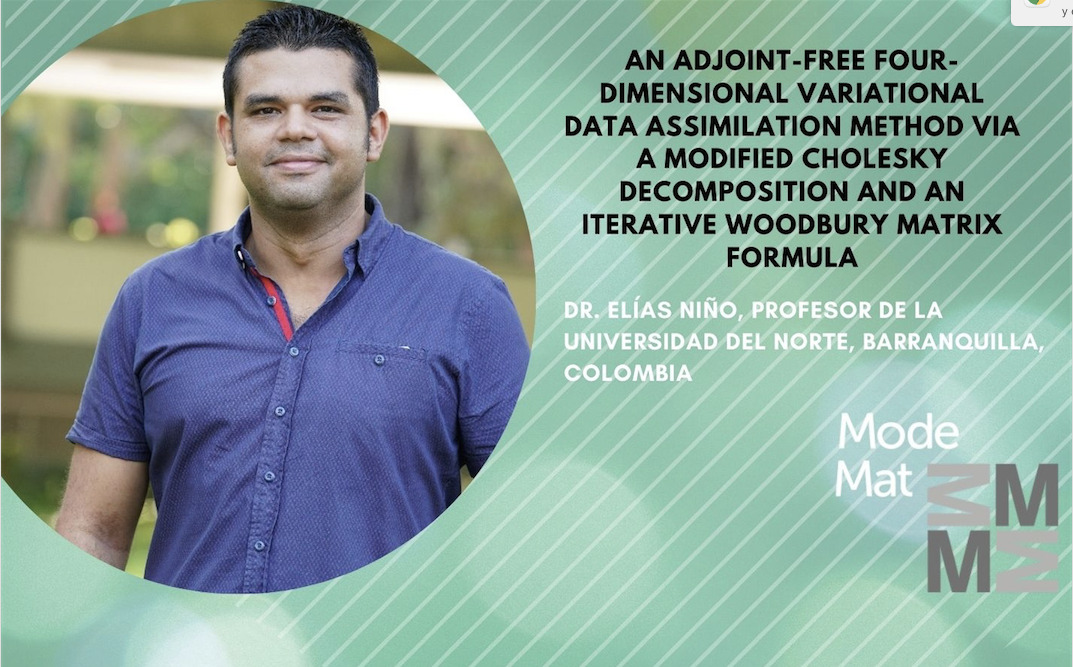
By Dr. Elías Niño, profesor de la Universidad del Norte, Barranquilla, Colombia
Seminar Date: 2021-02-04
In this research, we propose an efficient and practical implementation of a Four-Dimensional Variational Ensemble Kalman Filter (4D-EnKF) via a modified Cholesky decomposition. The main scope of our method is to avoid the intrinsic needed of adjoint models in the four-dimensional context. As it is well-known, in practice, adjoint models can be labor-intensive to develop and computationally expensive to run. We avoid the use of adjoint models by taking snapshots of an ensemble of model realizations at observation times. Then, we employ a modified Cholesky decomposition on those ensembles to build control spaces, which in turn are employed to estimate analysis increments and to mitigate the impact of sampling noise. We discuss a matrix-free implementation of our 4D-EnKF formulation via the Woodbury matrix identity. Experimental tests are performed by using the Lorenz 96 model and an Atmospheric General Circulation Model. The numerical results reveal that the accuracy of our proposed filter implementation outperforms those of traditional 4D-EnKF formulations in terms of L--2 error norms and Root-Mean-Square-Error values.